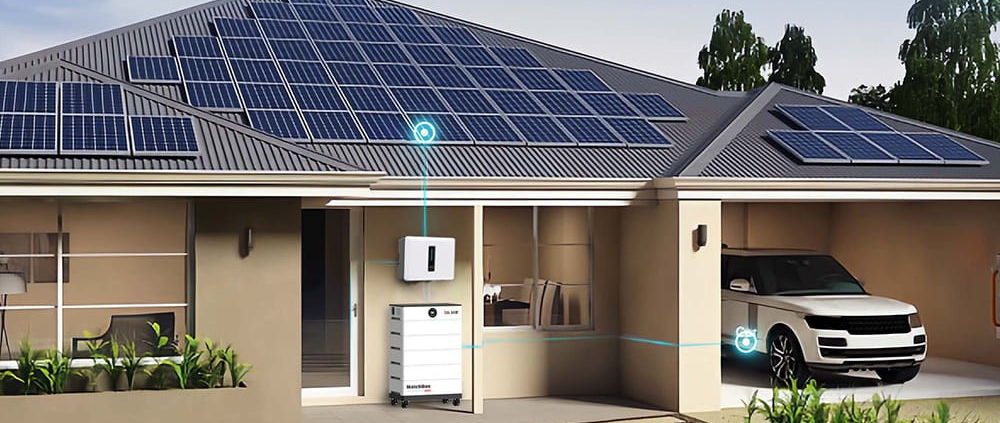Solar Battery for House: A Complete Guide to Choosing the Right System for Your Home
As home solar systems continue to gain popularity across North America, more homeowners are discovering that solar panels alone aren’t enough to guarantee true energy independence. To power your home day and night—and during blackouts—you need a solar battery.
But with so many options on the market, how do you choose the right solar battery for your house? This guide breaks down everything you need to know—from different types of maintenance-free batteries to their pros and cons, helping you make an informed decision before upgrading your home power system.
🌞 What Is a Solar Battery for House?
A solar battery stores excess electricity generated by your rooftop solar panels during the day, allowing you to use that energy later when sunlight isn’t available.
In essence, it’s the heart of a residential energy storage system, enabling you to:
- Power essential home appliances during outages
- Reduce electricity bills through peak shaving
- Maximize solar self-consumption
- Move toward full energy independence
Modern systems, such as those available through Residential Energy Storage Systems, combine high-capacity lithium batteries, smart inverters, and energy management software to deliver clean, reliable backup power.
⚙️ Maintenance-Free Batteries: What They Really Mean
When people hear “maintenance-free battery,” they often think of zero care—but that’s not entirely true.
“Maintenance-free” primarily refers to sealed, non-spillable batteries that don’t require users to add water or handle acid, as was necessary in older lead-acid designs.
Let’s look at the main types of maintenance-free batteries available today and what sets them apart.
🔋 Common Types of Maintenance-Free Batteries for Home Use
- Sealed Lead-Acid (SLA) / AGM Batteries
These are the traditional workhorses of home backup systems. They’re sealed, affordable, and widely used in small-scale solar storage.
Advantages:
- Low upfront cost
- Readily available and proven technology
- Tolerant to occasional overcharging
Limitations:
- Shorter lifespan (3–5 years on average)
- Lower energy density and heavier weight
- Can degrade faster in high-temperature environments
- Gel Batteries
A more stable version of lead-acid, gel batteries use a silica-based electrolyte that prevents leakage and extends cycle life.
Advantages:
- Better deep-cycle performance than AGM
- Maintenance-free and safe for indoor use
- Good resistance to vibration and temperature fluctuations
Limitations:
- Slower charging rate
- Sensitive to high discharge currents
- Still heavier and less efficient than lithium-ion options
- Lithium-Ion Batteries (LiFePO₄, NMC, etc.)
The most advanced and truly long-term maintenance-free solution available today.
Lithium batteries are compact, efficient, and supported by an integrated Battery Management System (BMS) that automatically balances and protects each cell.
Advantages:
- 3–5× longer lifespan than lead-acid (up to 6,000 cycles)
- Lightweight, high energy density
- No off-gassing or acid spills
- Fast charging and deeper usable capacity
Limitations:
- Higher initial cost
- Requires compatible inverter or controller
- Sensitive to extreme cold (without integrated heaters)
🧠 Why Maintenance-Free Batteries Require “Less Care,” Not “No Care”
Even the most advanced maintenance-free systems benefit from basic monitoring.
Checking voltage levels and maintaining an adequate state of charge ensures maximum safety and battery health.
Lithium-based systems often come with built-in monitoring apps that show real-time performance data, making oversight effortless.
🏡 Choosing the Right Solar Battery for Your House
When selecting a solar battery, consider the following key factors:
- System Voltage (48V vs. 120V+): Determines compatibility with your inverter.
- Usable Capacity: The actual energy you can draw (measured in kWh).
- Cycle Life: How many charge/discharge cycles the battery can sustain.
- Efficiency: Round-trip efficiency affects how much of your solar energy is actually stored and reused.
- Safety and Certification: UL 9540, UL 1973, and IEC standards ensure safe residential operation.
If you’re ready to explore high-performance residential systems, visit Residential Energy Storage Systems for modular, lithium-based home battery options designed for long-term reliability and low maintenance.
📚 Recommended Reading on Home Solar Storage
To explore more about residential solar and storage systems:
Learn how installation costs, incentives, and energy savings shape the value of home solar batteries.
A complete guide to what every homeowner should understand before investing in energy storage.
Explore how smart home BESS integrates solar, grid, and backup power to create energy-efficient living.
⚡ Final Thoughts
A solar battery for your house isn’t just a backup—it’s a gateway to energy independence.
Whether you opt for a cost-effective AGM battery or a high-performance lithium system, understanding the fundamentals of maintenance-free technologies helps ensure your investment pays off for years to come.


